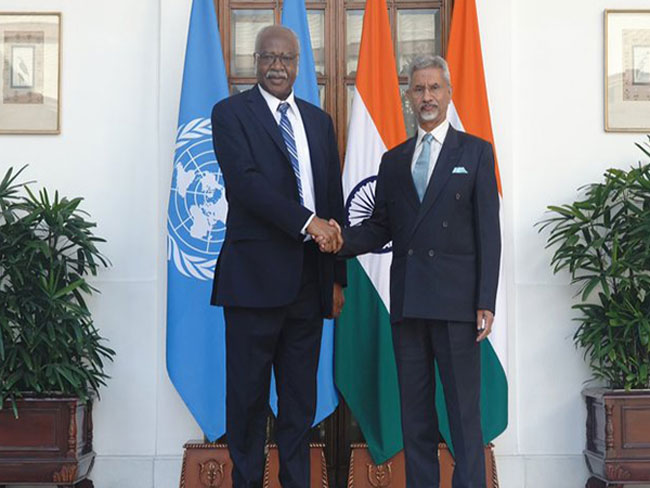New Delhi: External Affairs Minister S. Jaishankar met Philemon Yang, President of the 79th session of the United Nations General Assembly, on Wednesday to discuss key issues on the UN agenda, including regional, global, and developmental matters.
Jaishankar shared details of the meeting in a post on X, stating, “Pleasure to meet President of the 79th session of the United Nations General Assembly, Philemon Yang, this afternoon in Delhi. Discussed various issues on the UN agenda, including the need for reformed multilateralism. Also exchanged views on regional, global, and developmental issues. Appreciate his leadership and guidance at the UN.”
Yang, who arrived in New Delhi on Tuesday for a four-day visit at Jaishankar’s invitation, is scheduled to meet President Droupadi Murmu to further strengthen India’s engagement with the UN. The visit is focused on enhancing multilateral cooperation and addressing matters of mutual interest between India and the United Nations.
Welcoming Yang to India, MEA spokesperson Randhir Jaiswal posted on X, “Warm welcome to Mr. Philemon Yang to India. An opportunity to enhance India-UN engagement in the lead-up to the 80th anniversary of the United Nations.”
During his trip, Yang will also visit Bengaluru, where he is scheduled to interact with experts at Infosys and the Indian Institute of Science (IISc). The discussions will focus on India’s advancements in sustainability, digital public infrastructure, and innovation across various fields.
As the UNGA President since September 10, Yang has played a key role in the adoption of “A Pact for the Future,” a vision document aimed at fostering multilateral solutions for global challenges. A former Prime Minister of Cameroon, Yang has been a strong advocate for global unity, peace, and human dignity. During his meeting with Jaishankar, he praised India’s leadership in championing the interests of the Global South.
Yang’s visit underscores India’s growing influence in international affairs and its commitment to strengthening global partnerships through dialogue and cooperation.




